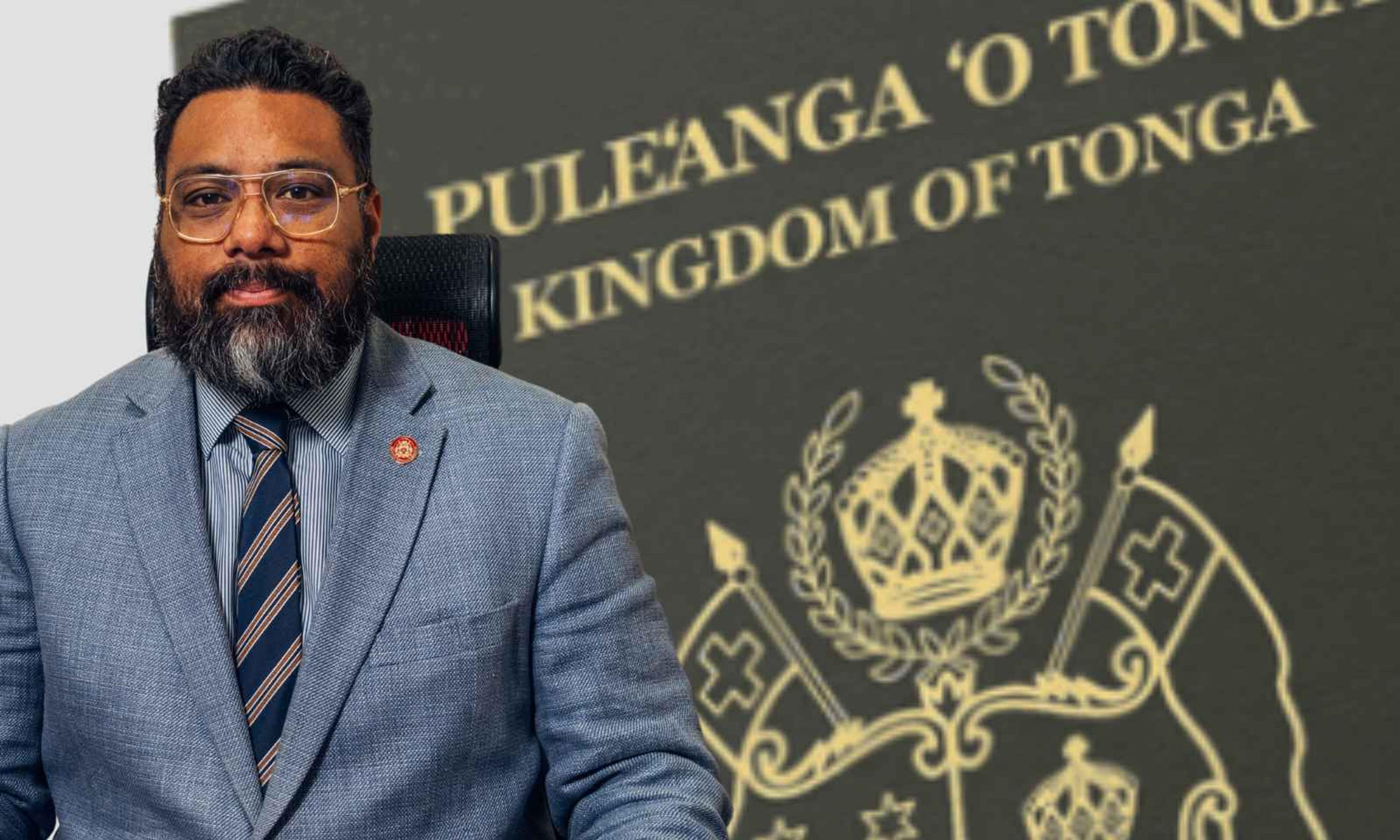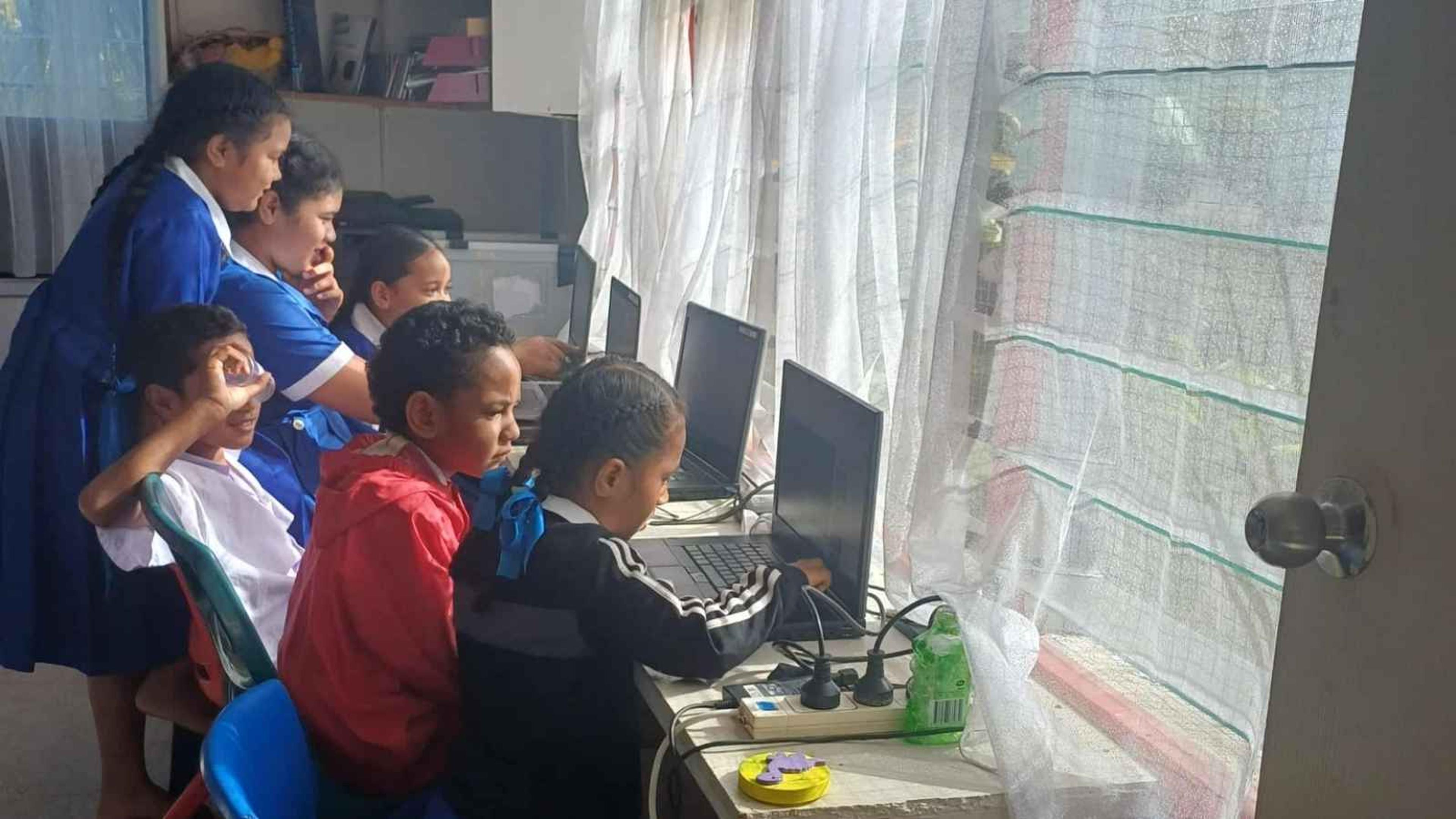

Pacific communities are less sold on the merits of the internet.
Unsplash
Pacific communities more wary of the web - report
Survey results show Pacific communities were less trusting of the internet, along with concerns around identity theft and less access for poorer households.


‘I knew something was wrong’: Pacific children miss out on early hearing support

Tonga makes historic breakthrough at Oceania Youth Chess Championship

‘A Library for the Heart of Tonga’: Building a hub for Nuku’alofa

Fresh warning as Tonga PM defends citizenship investment scheme

‘I knew something was wrong’: Pacific children miss out on early hearing support

Tonga makes historic breakthrough at Oceania Youth Chess Championship

‘A Library for the Heart of Tonga’: Building a hub for Nuku’alofa
Pacific communities are more concerned about the harms of internet use than the rest of the country.
This is from this year’s Internet Insights report, asking a thousand people about AI, disinformation, with the top concerns being young children accessing inappropriate content, and cyberbullying.
InternetNZ CEO Vivien Maidaborn says Pacific people were more mindful of the cost of internet access, and people who might be missing out.
“Internet speed, internet access and the ability of everyone to get to it is of real concern to Pacific families.
“They’re worried about people on lower socio-economic groups who can’t be there, but at the same time, taking a very cautious approach to the impact of the internet on family, church and community life.”
Speaking to Levi Matautia-Morgan on Pacific Mornings, Maidaborn says more people are questioning the benefits of internet use, and Pacific people more than others.
“Since last 2022, the number of people who think the positives of the internet outweigh the negatives has dropped from 84% to 80%, this number has been declining since 2019. For Māori it is 75% and for Pasifika peoples it’s only 63%.”
Of those surveyed, 63 per cent spend two to four hours accessing the internet outside of work, and almost half spend most of that time on social media. Daily use of platforms such as Facebook, Instagram and X has dropped, but the use of Facebook Messenger and TikTok is the same.
Other concerns include data security, online crime, identity theft, threats to privacy and misinformation. Maidaborn says the views of some Pacific communities may also be influenced by dodgy internet connections in the region.
“Many of the domain names in the Pacific have been run by people not in those sovereign nations. They’ve been owned by a little business in America or somewhere more broadly, and the Pacific domain names do have a reputation of being more vulnerable to scamming and phishing.”
New Zealand’s efforts to stop child exploitation
One of the highest levels of concern was around young children’s access to inappropriate material, and this was the survey’s top concern for the past five years.
New Zealand’s Department of Internal Affairs blocked more than a million websites showing child abuse last year and prosecuted fifteen people.
Reports of online sexual exploitation have almost quadrupled in the latest three-year reporting period. Digital Child Exploitation Team manager Tim Houston says the new technology is also adding challenges for their investigations.
“We are seeing a rise in AI generated abuse material that is disturbingly realistic.
“AI generated content is becoming easier to create, which normalises and encourages the physical abuse of children.
“It takes significant resource and time to determine whether a child is AI-generated or not and takes our investigators away from identifying real-world children who are at risk.”
Watch the full interview with Internet New Zealand CEO Vivien Maidaborn.
Need help?
If you are concerned about something you have seen or want to report a crime, please report it to the Digital Child Exploitation Team at DIA.
If you are the victim of a child abuse or sexual abuse crime:
https://www.kidshealth.org.nz/child-abuse-directory-information-and-support
Safe to Talk: 0800 044 334 Text 4334
If you are concerned about your own or someone else’s sexual behaviour, please reach out for support:
·Safe Network: 09 377 9898
·WellStop: 04 566 4745
·STOP: 03 353 0257
·Local treatment providers, or specialist therapists.